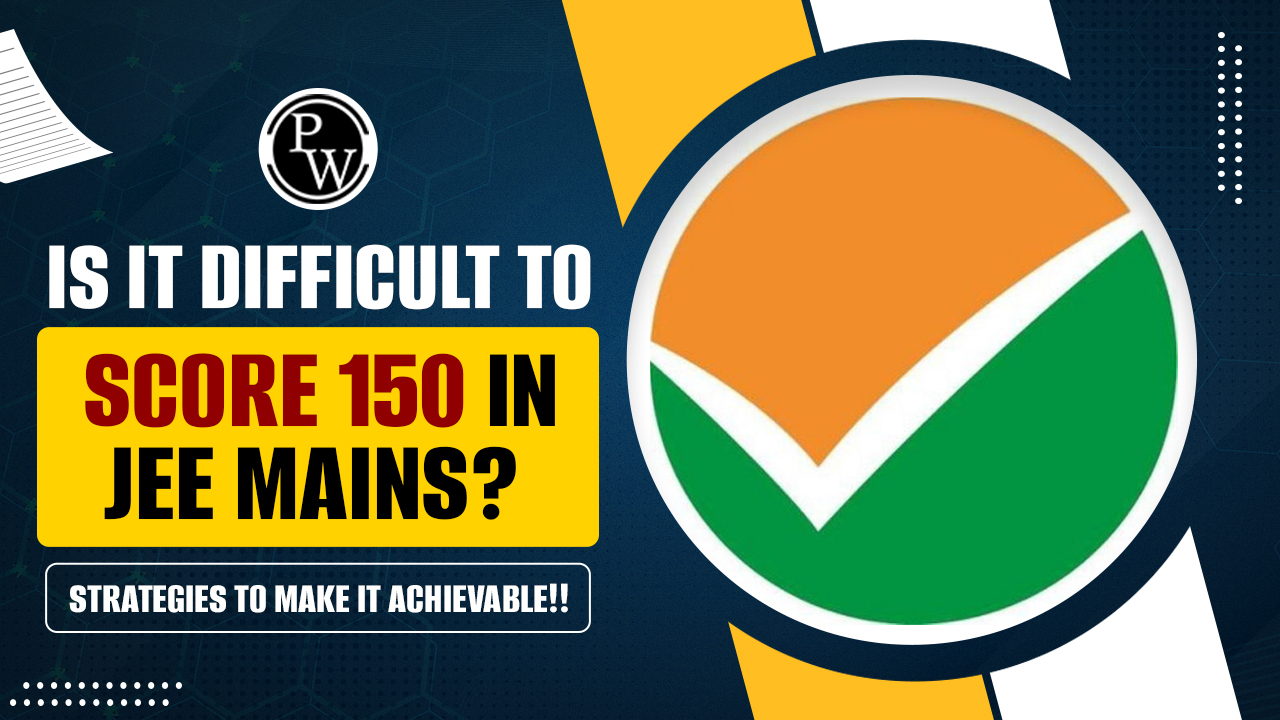Static GK Topics for SSC, Banking and other Govt Exams

Whether preparing for the SSC exam, bank exam, or any other competitive exam, having a strong understanding of General Knowledge (GK) is crucial. While current affairs keep us informed about the latest events, Static GK forms the foundation of our knowledge, covering facts that remain unchanged over time. From a young age, we have been introduced to Static GK topics like the national bird, national animal, famous monuments, and historical events. This knowledge stays relevant throughout our lives and plays a key role in cracking government exams.
For aspirants, Static GK for SSC, Static GK for bank exams, and other competitive tests includes subjects like Indian history, geography, polity, economy, important organisations, and famous personalities. Unlike current affairs, which change frequently, Static GK for competitive exams provides a reliable knowledge base that helps in scoring well in the General Awareness section. Regular revision and strategic preparation of these topics can significantly improve one’s chances of success. Whether it’s knowing the capitals of states, rivers of India, or key government schemes, Static GK is an essential part of any exam strategy. Check out the below article for some of the Static GK Topics for SSC, Banking and other Govt Exams.
Static GK for SSC Exams
Static GK is an important part of SSC exams as it tests a candidate’s knowledge of facts that do not change over time. Static GK for SSC includes topics like history, geography, politics, economy, science, famous dates, and important organisations. Scoring in this section is easy if prepared properly, as many direct questions are asked in SSC Tier 1 and Tier 2 exams. Check out the topic for Static GK for SSC Exams:-
|
Category |
Important Topics |
|
History |
Ancient, Medieval, and Modern History, Freedom Struggle, Important Dynasties |
|
Geography |
Indian states & capitals, rivers, mountains, national parks, important cities |
|
Polity |
Indian Constitution, Fundamental Rights, Parliament, Judiciary, Amendments |
|
Economy |
Five-Year Plans, Economic Terms, Budget, Important Policies |
|
Science & Technology |
Physics, Chemistry, Biology, Space Research, ISRO Missions |
|
Important Organisations |
UNO, WHO, UNESCO, IMF, World Bank, RBI, ISRO |
|
Awards & Honours |
Bharat Ratna, Padma Awards, Nobel Prize, National Sports Awards |
|
Sports |
Olympic Games, Cricket World Cup, Famous Trophies, Indian Sports Personalities |
|
Books & Authors |
Famous Indian and International Books and their Writers |
|
Miscellaneous |
National symbols, Important Temples, Dams, Airports, Famous Personalities |
Static GK for Bank Exams
Static GK is an essential part of banking exams as it helps in scoring well in the General Awareness section. Static GK for bank exams covers topics like banking and financial terms, important days, Indian economy, headquarters of banks, government schemes, and national and international organisations. Check out the Static GK for Bank Exams below:-
|
Category |
Important Topics |
|
Banking & Finance |
Banking history, functions of RBI, types of banks, financial institutions |
|
Economic Terminology |
Repo Rate, Reverse Repo Rate, Inflation, GDP, NPA, CRR, SLR |
|
Government Schemes |
PM Jan Dhan Yojana, Mudra Yojana, Stand-Up India, Atmanirbhar Bharat |
|
Important Financial Organisations |
RBI, SEBI, NABARD, IRDAI, World Bank, IMF, BIS |
|
Banking Awareness |
History of Indian banks, mergers of banks, financial inclusion initiatives |
|
Important Days |
National and International Financial Awareness Days (e.g., RBI Foundation Day) |
|
Currency & Capitals |
Countries and their currencies, World financial hubs |
|
Famous Books & Authors |
Books related to banking, finance, and economy |
|
Awards & Honours |
Banking and Finance Awards, Best Bank Awards, Economic Nobel Prize |
|
Miscellaneous |
Headquarters of banks, bank slogans and taglines, major financial committees |
Also check, RRB Books
Static GK for Competitive Exams
Check out the Static GK for Competitive Exams like, UPSC Exams, RRB Exams, NDA Exams etc:-
|
Category |
Important Topics |
|
History |
Ancient, Medieval & Modern Indian History, Freedom Struggle, Important Dynasties & Rulers, Revolts & Movements, World History (French Revolution, World Wars) |
|
Geography |
Indian & World Geography, Continents & Countries, Indian States & Capitals, Rivers, Mountains, Deserts, Plateaus, National Parks, Wildlife Sanctuaries, Climate Zones, Natural Disasters |
|
Polity |
Indian Constitution, Preamble, Fundamental Rights & Duties, Directive Principles of State Policy (DPSP), Parliament (Lok Sabha, Rajya Sabha), President & Governor Powers, Important Amendments, Judiciary System, Election Process |
|
Economy |
Five-Year Plans, Economic Policies, Indian Budget & Tax System, RBI Functions, Banking System (Types of Banks, Financial Institutions), GDP Growth, Inflation, Fiscal Deficit, Trade & Commerce |
|
Science & Technology |
Basic Physics, Chemistry & Biology Concepts, Space Research (ISRO, NASA Missions), Defence Research (DRDO), Innovations & Inventions, Famous Scientists, Medical Discoveries, AI & Robotics |
|
Important Organisations |
UNO, WHO, IMF, World Bank, WTO, UNESCO, RBI, SEBI, NABARD, IRDAI, ASEAN, SAARC, BRICS, G20, OPEC, ICC, INTERPOL |
|
Awards & Honours |
Bharat Ratna, Padma Awards, Nobel Prize, National Film Awards, Grammy & Oscar Awards, Sports Awards (Rajiv Gandhi Khel Ratna, Arjuna Award) |
|
Sports |
Olympic Games, FIFA World Cup, Cricket World Cup, ICC Tournaments, Indian Sports Leagues (IPL, ISL, PKL), Important Sports Personalities, Famous Stadiums, Commonwealth Games |
|
Books & Authors |
Famous Books & their Writers (Indian & International), Award-Winning Books (Booker Prize, Pulitzer Prize, Jnanpith Award), Autobiographies |
|
Important Days |
National & International Days (Republic Day, Independence Day, World Environment Day, World Health Day, UN Observance Days) |
|
Government Schemes |
PM Jan Dhan Yojana, Make in India, Digital India, Swachh Bharat Abhiyan, Ayushman Bharat, Pradhan Mantri Awas Yojana, Startup India, Atmanirbhar Bharat |
|
Defence & Military |
Indian Army, Navy, Air Force Ranks & Commands, Defence Exercises (Malabar, Yudh Abhyas), Missiles (Agni, BrahMos), Fighter Jets, Aircraft Carriers, Defence Deals |
|
Currencies & Capitals |
Countries & Their Currencies, World Financial Hubs, Stock Exchanges (BSE, NSE, NASDAQ) |
|
Miscellaneous |
National Symbols (Bird, Animal, Tree, Flower), Important Temples, Famous Dams, Airports, Rivers, Monuments, Dance Forms, Festivals, Indian Space Missions |
How to Prepare for Static GK?
Static GK is a crucial part of competitive exams like SSC, Bank Exams, UPSC, Railways, and other government job tests. Check how to prepare for Static GK:-
1. Understand the Static GK Syllabus
Aspirants must first familiarise themselves with the Static GK syllabus to know which topics to focus on. This section includes areas such as Indian and world history, geography, the Indian Constitution, economic terms, scientific discoveries, major awards, sports events, and important international organisations.
Many of these subjects have been a part of school education, but for Static GK for competitive exams, deeper knowledge and memorisation of facts are necessary.
2. Choose the Right Study Materials
Selecting the right study materials is essential for effective preparation. Books like NCERTs (Class 6-12), or Physics Wallah offers daily quizzes, mock tests, and updates that help in revising key concepts.
These resources are particularly beneficial for Static GK for SSC and Static GK for Bank Exams, as they cover exam-specific topics in a structured way. Candidates should also refer to previous years' question papers to understand the types of questions asked in different exams.
3. Make Personal Notes for Quick Revision
Given the vastness of Static GK topics, making personal notes can help in better recalling whatever is studied. Writing down key facts in a structured manner will allow candidates to revise quickly before the exam. Using techniques like mnemonics, mind maps, and flashcards can make memorisation easier.
For example, listing Indian national parks under different states, grouping international organisations with their headquarters, and linking important historical events with years can improve recall. These strategies are especially useful for remembering information in Static GK for competitive exams, where direct factual questions are commonly asked.
4. Develop a Habit of Regular Revision
Memorising facts once is not enough; regular revision is key to mastering Static GK. Candidates should set aside time every day or week to go over their notes and quiz themselves on different topics. Revisiting previously learned information strengthens memory and ensures that facts are fresh in mind.
For Static GK for SSC and Static GK for Bank Exams, revision is particularly important as many topics, such as banking awareness, government schemes, and economic policies, require thorough understanding. Regular self-assessment through mock tests and quizzes also helps in identifying weak areas that need further improvement.
5. Attempt Previous Years’ Question Papers and Mock Tests
Practicing previous years’ question papers gives candidates an insight into the pattern of questions asked in Static GK for competitive exams. This helps in understanding which topics are frequently tested and how to approach different types of questions.
Mock tests simulate real exam conditions, improving time management and accuracy. Many online platforms offer free and paid mock tests, which candidates should include in their study plan. Solving at least 10-15 mock tests before the exam can significantly improve performance in Static GK for SSC, Static GK for Bank Exams, and other competitive exams.
6. Focus on Frequently Asked Topics
While the syllabus for Static GK is vast, certain topics appear more frequently in exams. Candidates should focus more on subjects like Indian polity, economic terms, major historical events, geographical locations, sports tournaments, and awards.
Keeping track of newly added UNESCO World Heritage Sites, renamed cities, and changes in government schemes is also important, as such updates often become part of Static GK for competitive exams. A strategic approach to studying the most important general knowledge topics will maximise efficiency and improve scores.
7. Stay Updated with Reliable Sources
Although Static GK topics do not change, some information may get updated over time. For instance, changes in government policies, newly introduced schemes, or international agreements should be noted. Candidates should follow reputable sources such as PIB, The Hindu, Indian Express, Economic Times, and official government websites for verified information.
8. Group Study and Discussion for Better Retention
Studying in a group or discussing Static GK topics with friends can help in learning in a better way. Explaining concepts to others helps in remembering facts more effectively.
Group quizzes and discussions also make learning interactive and engaging. Candidates preparing for Static GK for SSC or Static GK for Bank Exams can form study groups, either offline or online, to exchange notes, share resources, and test each other’s knowledge.
Read More: List of Important Days and Dates in 2025: Month-Wise Guide
Static GK Topics FAQs
-
What is Static GK?
Static GK refers to general knowledge topics that do not change over time, such as history, geography, important dates, and national symbols.
-
Why is Static GK important for competitive exams?
Static GK plays a crucial role in exams like SSC, banking, and other government exams as it helps candidates score well in the General Awareness section.
-
What are the main topics covered in Static GK?
Static GK topics include history, geography, Indian polity, economy, important organisations, books and authors, national and international events, and famous personalities.
-
How is Static GK different from Current Affairs?
Static GK consists of facts that remain unchanged over time, while current affairs focus on recent events and developments happening in India and around the world.
-
Which exams have Static GK questions?
Static GK is an important part of SSC, bank exams (IBPS, SBI, RBI), UPSC, railway exams, state PSCs, and other government job exams.











